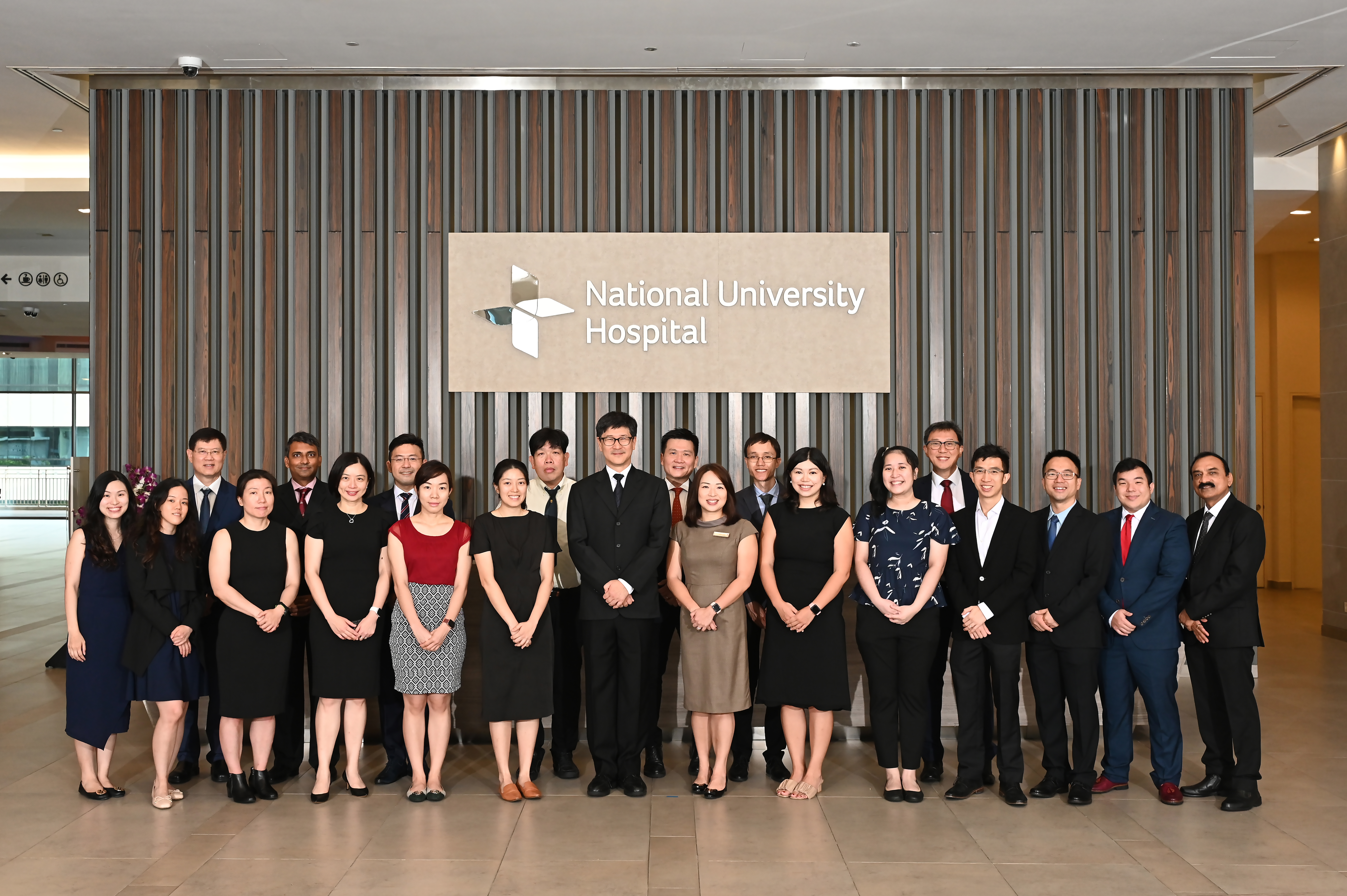We provide comprehensive neurology services for both inpatients and outpatient. Our care extends to patients hospitalised under the Neurology Inpatient Service, including the operation of a Neurology High Dependency Unit. We also provide specialist neurology consultations for inpatients from other disciplines. For stroke patients, we offer acute thrombolytic and endovascular therapy.
Our outpatient service caters to patients referred by general practitioners and other specialists for various neurological conditions. The outpatient service includes the following sub-specialty clinics:
Stroke Clinic
We offer follow-up care for stroke patients and work with primary care physicians to manage stroke and cardiovascular risk factors.
Atrial Fibrillation and Stroke Clinic
This clinic focuses on patients who have experienced a stroke secondary to atrial fibrillation.
Neuro-Immunology Clinic
Patients with autoimmune neurological conditions, such as multiple sclerosis, neuromyelitis optica, transverse myelitis and autoimmune encephalitis, are seen here.
Peripheral Nerve Surgery Clinic
A multidisciplinary service providing advanced clinical care for complex peripheral nerve disorders. The clinic involves team members from the Division of Neurology and the Department of Hand and Reconstructive Microsurgery.
This clinic addresses a wide range of peripheral nerve issues, including brachial plexus injury, other nerve traumas, nerve entrapments (such as Carpal Tunnel Syndrome, Ulnar Neuropathy, Meralgia Paresthetica, Tarsal Tunnel and Radial Neuropathy) and inflammatory or tumour-related conditions (e.g., Morton Neuroma, Schwannoma).
Supporting the clinical team are diagnostic tools like high-resolution ultrasonography and MRI, combined with neurophysiological examination techniques (nerve conduction, electromyography (EMG), evoked potentials and autonomic/small nerve fibre tests).
Diagnostic tools
Neurodiagnostic tests for peripheral nerve disorders include:
- Nerve conduction studies
- EMG
- Somatosensory evoked studies (Median and Tibial)
- High-resolution nerve ultrasound
Autonomic Disorders/Small Fibre Neuropathy clinic
Movement Disorders Clinic
We offer comprehensive care to patients with movement disorders. This includes Botulinum injections for dystonia or contractures, and holistic care for Parkinson’s Disease patients by an Advanced Practice Nurse.
Headache Services
Our specialist outpatient care encompasses various headache and facial pain disorders, such as migraines, tension-type headaches, trigeminal autonomic cephalalgias (e.g., cluster headaches), hemincrania continua, hypnic headaches, trigeminal neuralgia, and more. An inpatient service is available for patients with intractable headaches.
Seizure/Epilepsy Clinic
We provide expert diagnosis and medical management for seizure disorders, aiming to optimise seizure control.
Neuromuscular Disorders Clinic – Nerve and Muscle Programme
Our clinics, run by physicians specialising in neuromuscular diseases, caters to patients with nerve or muscle disorders. Symptoms of these disorders may include weakness, cramps, numbness and pain.
Conditions treated include neuropathies, myopathies, neuromuscular junction disorders, motor neuron disease and spinal cord disorders. Comprehensive electrodiagnostic services and peripheral nerve ultrasound are at the Neurodiagnostic Laboratory.
Management often involves multiple disciplines. We strive to provide optimal care by integrating various resources.
Our Services
- Neuromuscular Clinic
- Peripheral Nerve Surgery Clinic <anchor link to Peripheral Nerve Surgery clinic below>
- Electrodiagnosis for nerve and muscle dysfunction
- Autonomic and small fibre neuropathy
- Neuromuscular case discussion/multidisciplinary round
Our Specialists
Programme Co-Directors
Clinical Director, Neurodiagnostic (NDL) Services
Section Lead, Autonomic and Small Fibre Neuropathy
Team Members
Neurodiagnostic Laboratory
Back to Top


















